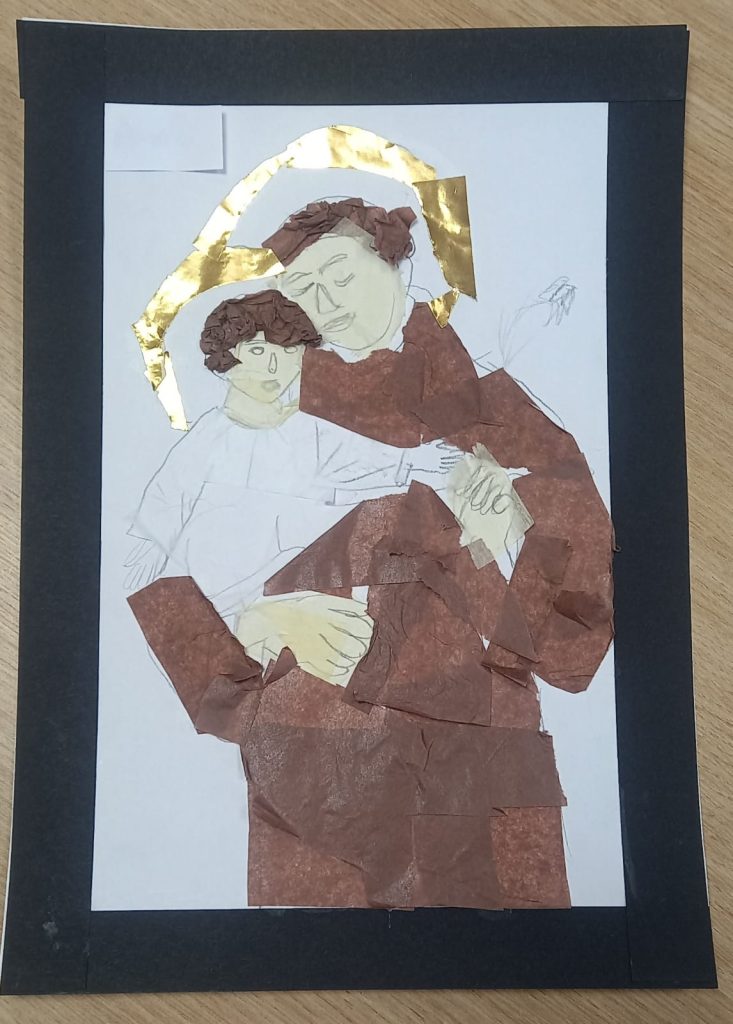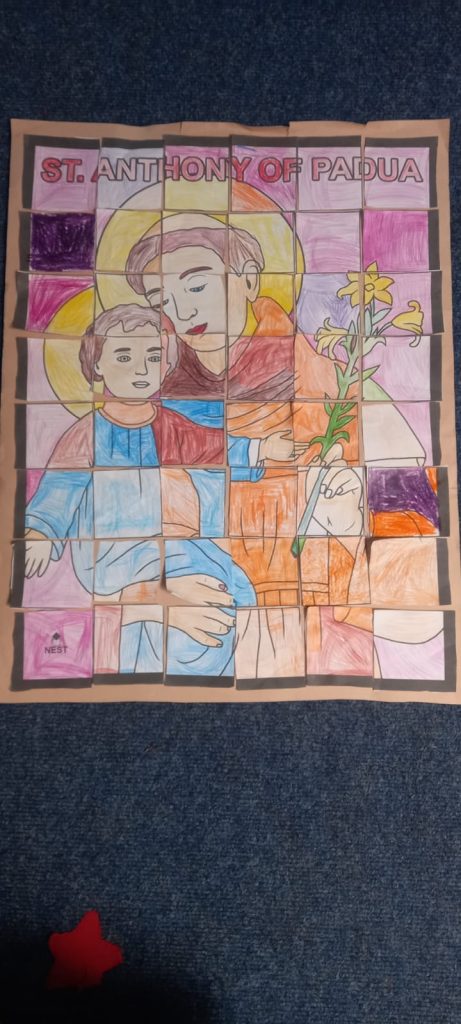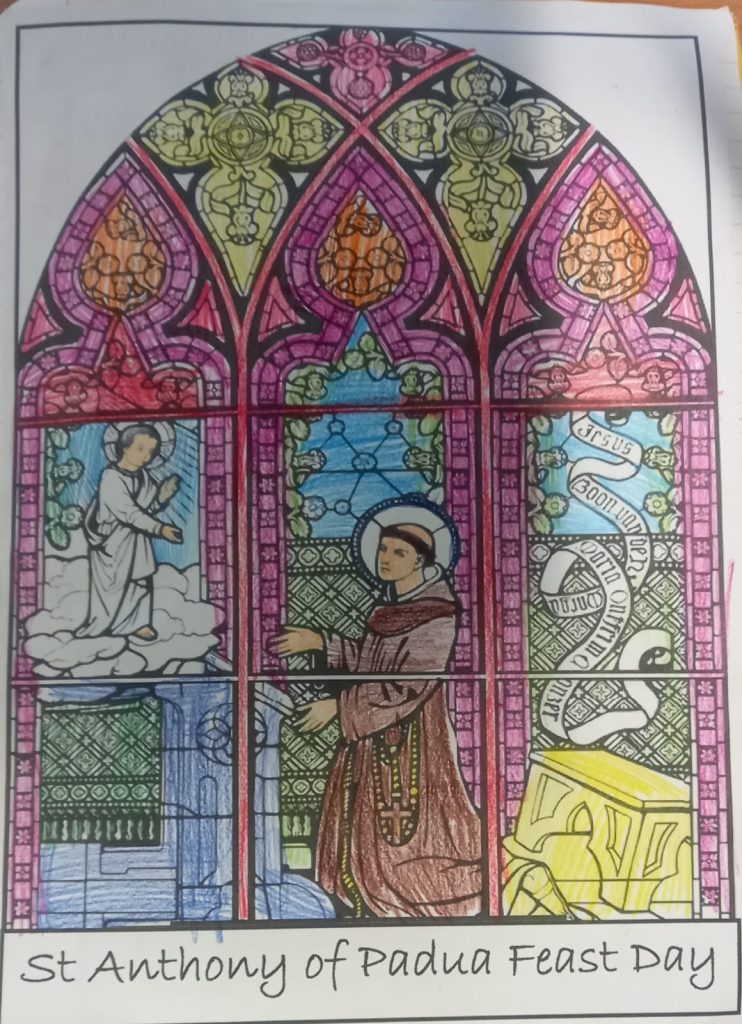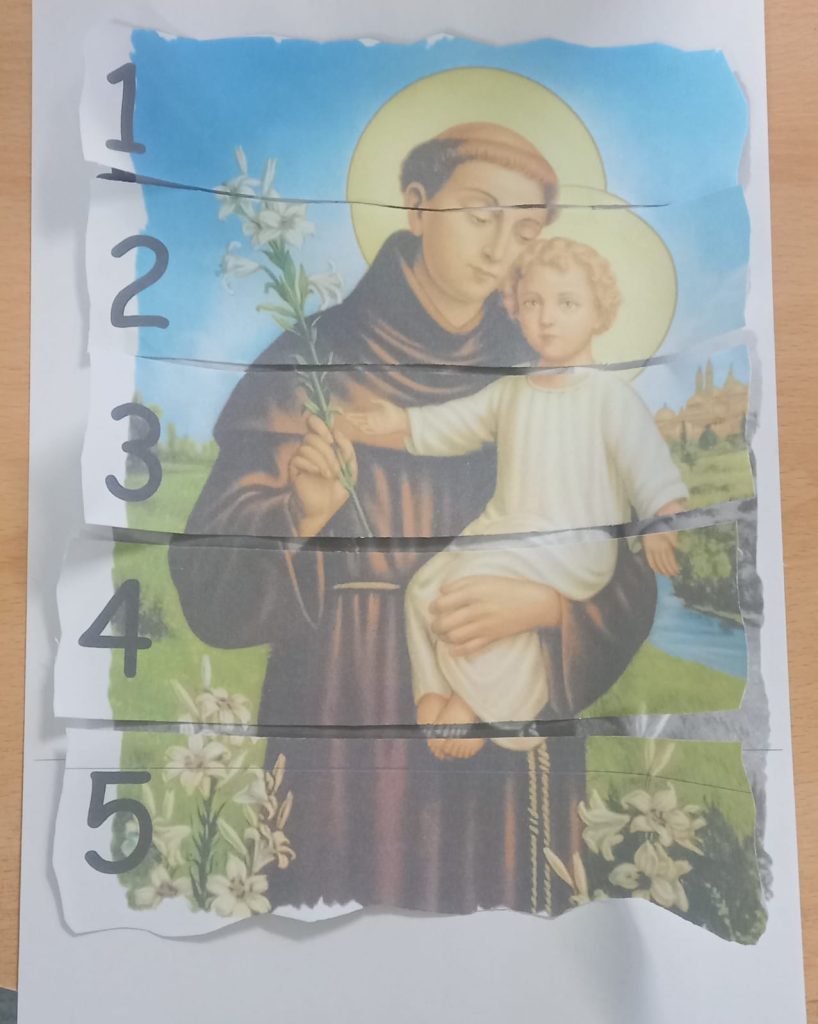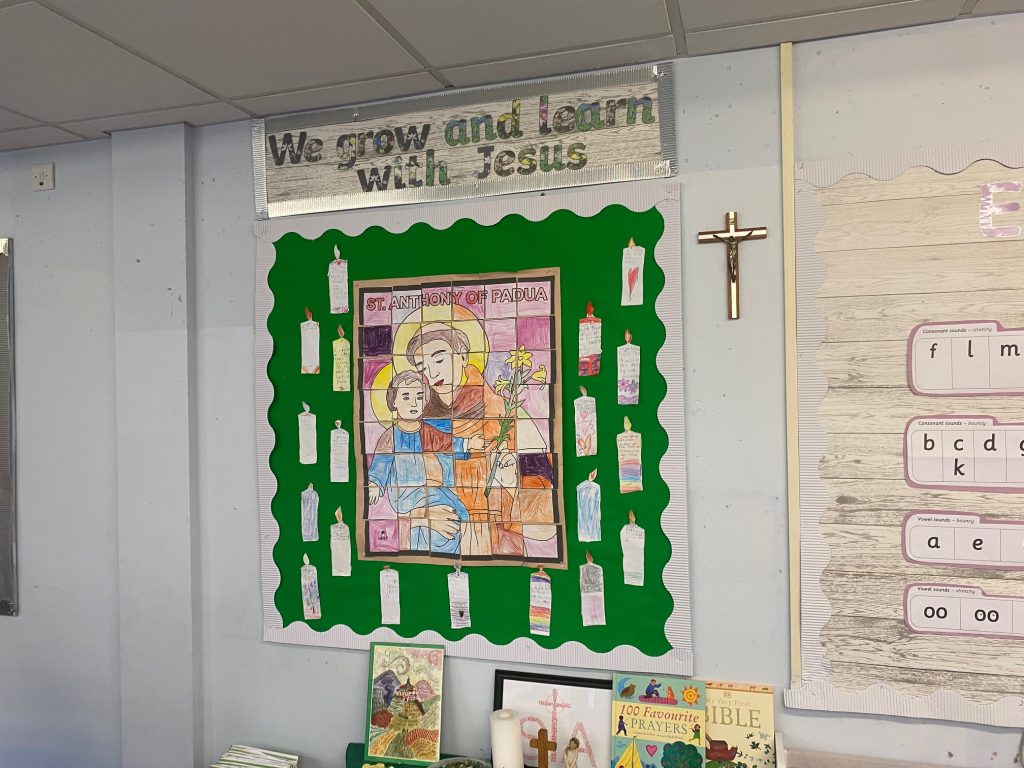St Anthony of Padua
Our school was named St. Anthony’s because of the large Italian community living in Watford. It was felt that a school named after a saint associated with that country would give a feeling of home to these children.
St. Anthony was born in 1195 on August 15th, the feast of the Assumption. He was born Fernando de Bulhoes in Lisbon, the capital of Portugal. At the age of fifteen he joined the Canons Regular in Lisbon. A few years later St. Francis of Assisi founded his order. Fernando met some of the first Franciscans and decided to join them. He took the name Anthony after Saint Anthony of Egypt. He later became known as Anthony of Padua. He spent most of the rest of his life in Italy.
Anthony was a man of great learning and worked for some time at the Franciscan school in Bologna where he built up a reputation as a brilliant preacher. Copies of his sermons are to be found in the Antonian library in Padua.
Anthony travelled widely throughout Portugal, Italy and France. Anthony died at Arcella, just outside Padua on 13th June 1231 at the age of 36. He was buried in the church of St. Mary in Padua. Anthony was declared a saint and a doctor of the church on 30th May 1232. After Anthony’s death, a special Basilica was built in Padua. Over the centuries St. Anthony’s tomb was moved several times within the Basilica. The present resting place was decided in 1745.
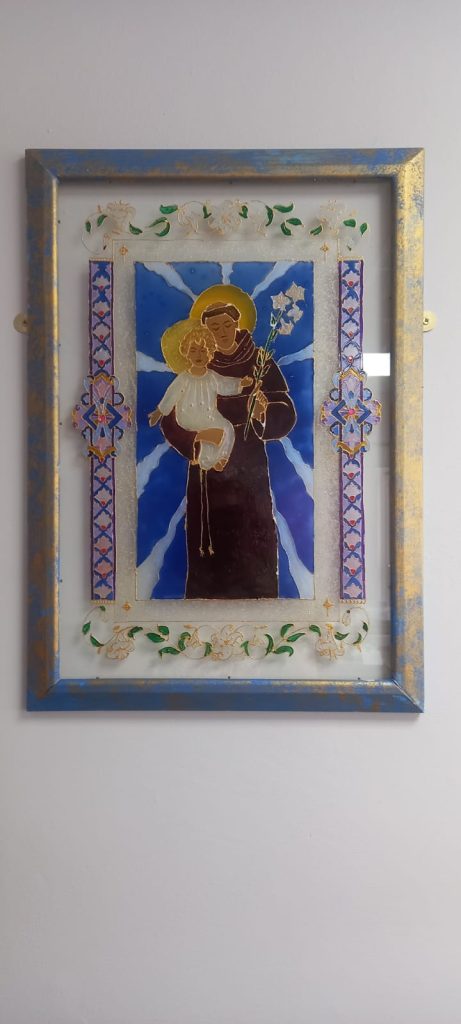
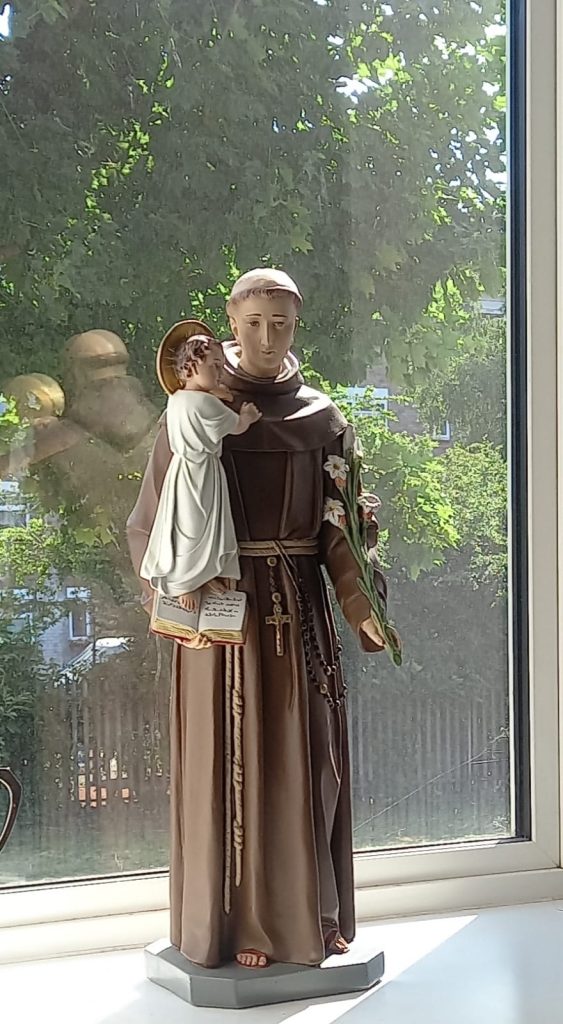
Patron Saint of the lost.
While staying at the Franciscan monastery at Montpellier, St. Anthony was teaching and preaching to his fellow Franciscans. St. Anthony kept with him a book of Psalms that he copied by hand, which had his notes and commentary that he used while teaching theology to his students. This was during the 13th century when books were hard to come by and not easily produced. It would have been very difficult or even impossible for St. Anthony to replace the book if it were ever lost. One of his pupils decided to leave the Franciscan community and when he left, St. Anthony couldn’t find his book of Psalms! The young novice took the precious book with him, and St. Anthony became deeply distressed, not knowing what he would do without the book. He had no idea where this young man went, and it was nearly impossible to track him down.
Trusting in God, St. Anthony prayed that the novice would have a change of heart and return the book. Shortly after, the young man turned around and gave the book back to St. Anthony, asking for his forgiveness. He also returned to the Franciscans and St. Anthony forgave the novice, exhorting him to never do something like that again.
That same book is said to be preserved in the Franciscan monastery in Bologna, Italy.
After the death of St. Anthony, this story became a “legend” and spread like wildfire. He quickly became known as a powerful intercessor for lost things and his reputation has only grown over the years.
Classes in St Anthony’s
When children join St Anthony’s they are placed in either a Lisbon or Padua class to which they will belong throughout their time at the school.
Every year on 13th June we celebrate the Feast Day of St. Anthony. On this special occasion the whole school takes part in a day of activities and worship linked to St. Anthony.
